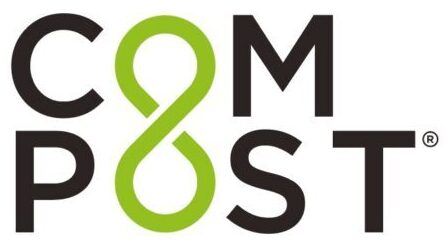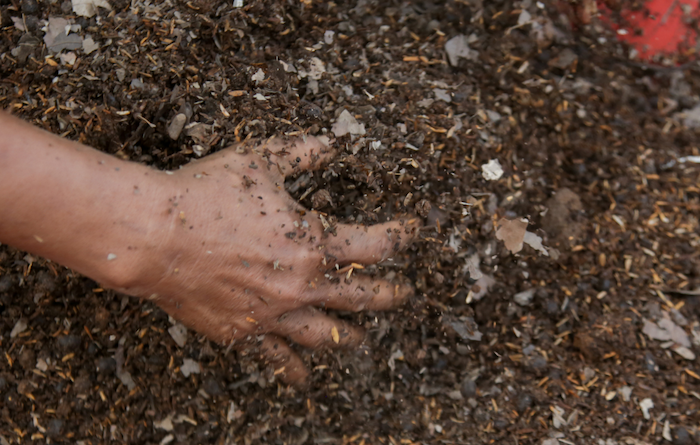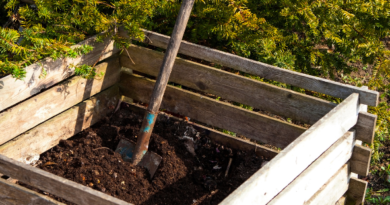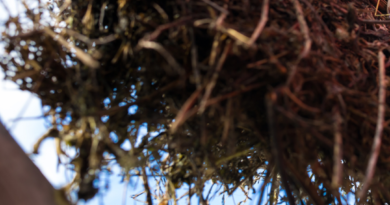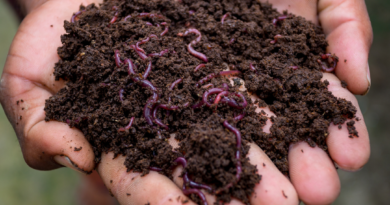Have You Heard Any Of These Composting Myths?
Composting is a natural process that is integral to responsible waste management. It is also an important source of soil organic matter. Composting is not widely done in Kenyan homes, perhaps due to a lack of support or lack of sufficient information as to how simple it can be. In this article, we dispel some myths and hopefully provide clarity.
Myth 1: Composting requires a lot of work
Composting is a natural process that involves the elements of nature doing the job for you. You may have heard or read that when piling the compost bin you need to layer the browns and greens. But it does not have to be so methodical. You simply need to dispose of your waste, as usual, just making sure that your browns exceed the greens. Read this article on what this means. Composting is a low maintenance activity as well. You only need to turn the compost pile every once in a while to keep the air flowing to quicken the decomposition process and that ís it. You practically sit and wait for the compost to finish.
Myth 2: Composting is limited to farms and wide-open spaces
On the contrary, people living in urban areas who have no luxury for space can create their composting bin from a trash can. The best and easiest composting method for space-constrained spaces is Bokashi. Vermicomposting is another technique that you can use, it involves the use of red worms in a contained bin where you feed them food waste.
Myth 3: Composting needs precise measurements
Even though composting ideally would be best achieved with the right combination of greens and browns elements, having the exact measurements is not that necessary. Estimates work just fine.
Myth 4: You need specially formulated chemicals as starters or activators
There is no need in adding any chemicals as starters or activators to the compost. It is often the practice to just throw in some finished compost into the newly formed compost pile and that itself will serve as the activator to get things started.
Myth 5: Adding yeast will boost the compost’s performance
This is not true at all. Adding yeast would be wasting your money. Yeast does not do anything to the compost pile and neither does it affect the performance quality of the compost.
Myth 6: Animals are attracted to composting piles
Yes, this to some degree is true. Composting piles can attract the occasional cat, dog or rodent. Small critters will likely go for open compost piles and for piles that have kitchen scraps like meat, fat, dairy products, bones and pet manure to the pile. The reason we state this as a myth with some truth is that you can deter any animals from your compost pile by covering it or by composting it in a closed bin. We also advise you to avoid adding meats, dairy and cooked food to your compost pile. These are the main attraction of animals.
Myth 7: Compost smells
Compost should not smell. If the compost pile is smelling then you need to troubleshoot and solve the issue.
Myth 8: Don’t add weeds
Weeds are in most cases no different from other plant materials. So they will decompose quickly when added to the compost pile. However, weed seeds are a different story as these could present a problem when the compost is added to the garden. A hot compost pile is likely to kill the seeds, but you can’t always be sure. So try and avoid adding weeds that have gone to seed.
Myth 9: Don’t Add Onions or Citrus Peels to a Compost Bin
Whilst citrus peels take longer to decompose, adding them to the pile is not a problem. You can simply separate them as the compost pile continues to decompose and keep adding them back in until they fully decompose.
Myth 10. Don’t compost cooked food, meat, dairy and fat
Now, this is a controversial one. If you are a home composter or are open composting in your backyard garden then certainly you should not add these items to your compost because they take long and attract animals. This does not mean that they cannot be composted. Going the Bokashi way is one way of composting these in small spaces. Or hot composting in built-up bins outdoors is another way. You just need to know that they take longer than other vegetable matter.
Happy composting!
